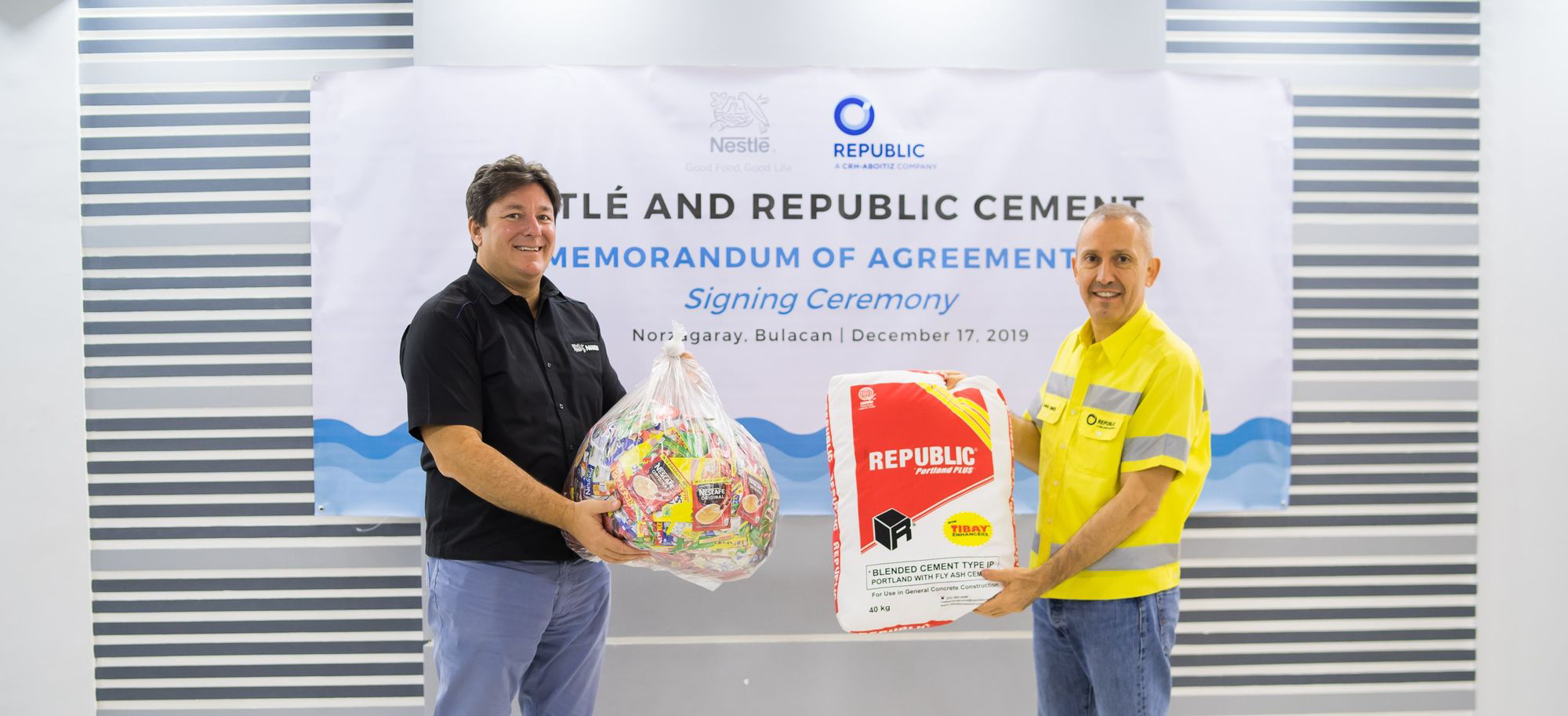Licensed by the Department of Environment and Natural Resources (DENR), Republic Cement has been utilizing and disposing qualified waste streams through cement kiln co-processing – a waste management method which recovers and utilizes the energy or mineral content of wastes by feeding fuel and raw materials such as calcium carbonate into a kiln.
As part of an effort to reduce plastic waste in the country, Republic Cement deepened its partnership with Nestlé Philippines for an expanded co-processing initiative.
Co-processing burns waste materials at a very high temperature breaking down complex materials into simpler compounds and producing cement. Emissions from the process are filtered and monitored in compliance with DENR standards.
In a single operation, waste heat is recovered through complete waste combustion, and cement is manufactured.

Republic Cement is happy to be working with Nestlé in their push to becoming plastic-neutral. This partnership likewise allows us to do more as we promote the use of alternative fuel to further embed sustainability in our operations. – Nabil Francis, President and CEO, Republic Cement
Inked in 2019, the agreement between Republic Cement and Nestle aims to reduce plastic waste by increasing the amount of post-consumer plastic waste that’s collected and co-processed in the former’s cement kilns.
Increasing the amount of post-consumer plastic wastes to be co-processed is a significant point in our expanded 2020 agreement. Through this partnership, we hope to contribute significantly to the various programs in the country that address environmental concerns with regard to the high levels of plastic pollution. – Nabil Francis, Republic Cement
Nestlé announced its global commitment in 2018 to make 100% of its packaging recyclable or reusable by 2025. The food and beverage company intends to achieve plastic neutrality in the long-term goal which involves recovering post-consumer plastics equal to the quantity of plastic packaging that companies used to package their products.
We continue to intensify our efforts to tackle plastic wastes, to expand our reach, and we are thankful to Republic Cement for helping us do just that. Our new agreement is a welcome step in our common journey, and specifically will help us collect considerably more plastics than we did last year. – Kais Marzouki, Chairman and CEO, Nestlé Philippines
Since energy and minerals from waste are almost completely used up during the process, co-processing is more advantageous compared to land filling and physical treatment as it diverts wastes from waterways and oceans.
Republic Cement has mastered the art of alternative fuels for almost two decades at its five integrated cement plants across the country. Backed by 60 years of manufacturing expertise, it started cement co-processing in the early 2000s with biomass wastes such as rice husk and woodchips. Since 2012, it has handled more complicated hazardous wastes from industrial sources.
With Republic Cement’s co-processing method, Nestlé Philippines is aligned in its mission to reduce plastic wastes in landfills, and the entry of these into waterways and oceans.
In accelerating the search for solutions to the plastics problem, it is necessary, while we look for innovative packaging solutions, that we take immediate action to divert waste away from landfills and stop plastic waste from entering waterways and oceans. As we seek to achieve plastic neutrality, we aim to recover at least the equivalent of the quantity of plastic packaging we generate. – Kais Marzouki, Nestlé Philippines
With strengthened partnerships with organizations in the country like Nestlé Philippines, Republic Cement hopes to impact more communities and contribute to building a greener, stronger Republic. – Nabil Francis, Republic Cement

